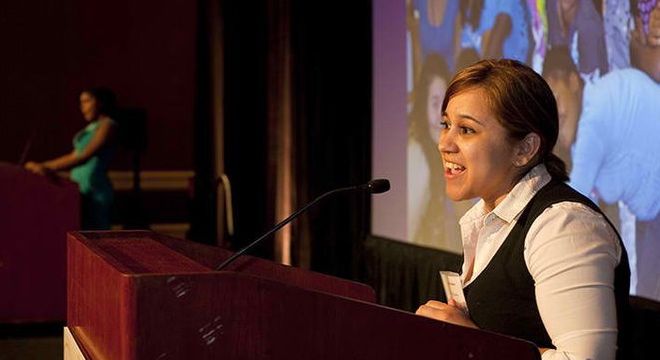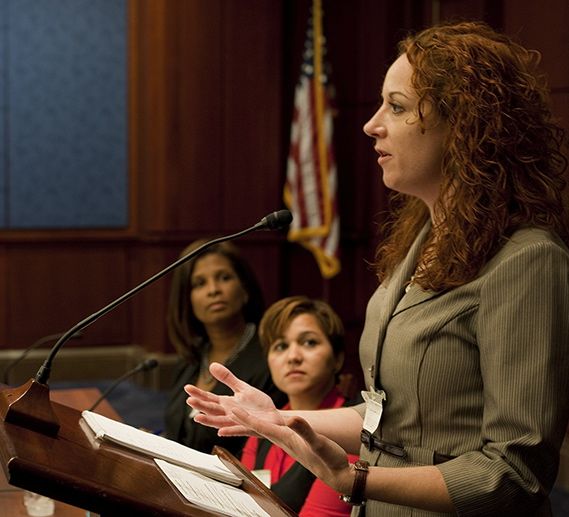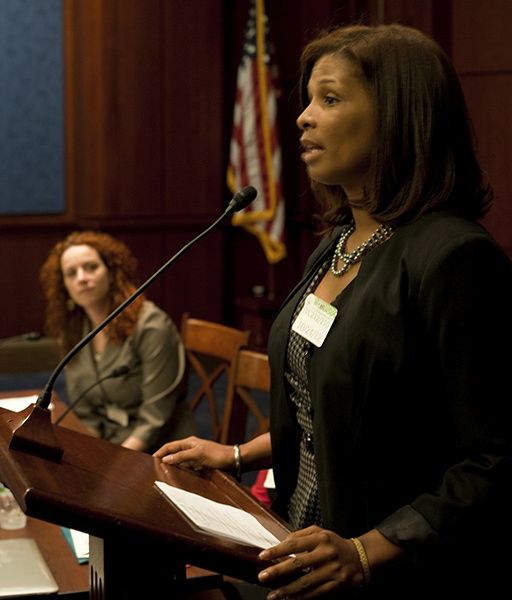
This is the second in a two-part series looking at a pivotal study of why teenagers and very young women get pregnant.
When the Crittenton Foundation recently presented the results of a pilot study of its clients -- teenage and young women, many who are pregnant or parenting -- the bad news was that, compared with a general population, they suffered seven times the levels of child abuse and other maltreatment.
Also, the percentage of those with an ACE score of four was 3.5 to five times higher than a general population. The ACE score was developed by the CDC's groundbreaking Adverse Childhood Experiences Study. You can think of an ACE score as a cholesterol score for childhood toxic stress. You get one point for each type of trauma, up to 10. The higher your ACE score, the higher your risk for health, emotional and social problems. (What's your ACE score?)
The good news is that services provided by organizations such as Crittenton can help people turn their lives around and interrupt the cycle of parents passing on their high ACE scores to their children.
In other words, although the brain can be damaged from an overload of toxic stress hormones, the brain is also resilient and plastic. With intervention, support and understanding, someone with a high ACE score can reduce her or his risk for chronic disease, violence and/or depression.
Three women with high ACE scores provided the evidence -- their own lives -- at the recent briefing where the Crittenton study results were announced.
Lisette Orellana, 26, two children. ACE score: eight. Orellana became pregnant at 15, her grades plummeted from straight As to failing, and she moved in with an abusive alcoholic. Then she signed up for a program for parenting teens in her high school. She became pregnant a second time. With support from people in the program, she finally left the relationship after her children -- then 22 months and 3 months -- witnessed their father beating her into the floor. She earned a bachelor's degree in communication from the University of Maryland, and now she's director of external relations for Crittenton Services of Greater Washington. She does fundraising, outreach, communications, and marketing.

What people should know about teens who get pregnant: "Girls are driven to make choices because of factors in their environment. And unless you find those causes, we can't get rid of what's affecting us."
Her reaction to the ACE survey: "I couldn't believe that professionals didn't have some kind of way to measure this before."
Kate Becker, 35, three children. ACE score: eight. When Becker was 13, she was raising five younger brothers and sisters. Her mother had abandoned the family. When she was 14, Becker became pregnant. After her father hit her so hard she felt the "bones in my spine pop," she was fearful for the health of the fetus and went to a Florence Crittenton home in Charlotte, N.C. She gave the baby up for adoption. She was placed in foster care, and when her foster father attempted to molest her, she left and spent the last two years of high school living in friends' homes and a boarding house. While she attended UNC-Charlotte, she had three children with three different men. She works full-time as a contract and properties administrator while going to law school at night. She'll graduate next May. She regards the Crittenton staff members she's known since she was 14 as her family.
What people should know about teens who get pregnant: "This does not occur in a vacuum. All the things that impacted me, most people can't understand. When you're dealing with a girl who's been raped, molested, beaten viciously by parents -- any one of those makes it difficult to maneuver through childhood. Take eight of those, it becomes a mountain."

Her reaction to the ACE survey: "To be perfectly candid, my very first thought was: Why isn't this common sense to everybody? How can you have people exposed to these kind of traumas, and not expect higher rates of substance abuse, mental illness, the inability to get a good education or employment?"
About being aware of how her childhood trauma was affecting her and her sons: "My level of awareness was nonexistent. When I was raising my three sons -- as a 21-, 22-, and 25-year-old -- I had no assistance from their dads. When I was an undergrad, I was on welfare, had section 8 (assisted housing), Medicaid, food stamps. I was so busy just surviving that how my trauma from the past was impacting my kids was not even on my radar. They were 10 months, 3 years and 5 years old when I graduated."
Julia McCartha, 36, three children. ACE score: eight. McCartha ran away from her dysfunctional and abusive home when she was 13. She became pregnant when she was 15 and dropped out of high school. She lived in a group home and a home for pregnant teens and young mothers. Her turning point was when she was placed in Youth Service, Inc. in Philadelphia, where Crittenton runs a parenting program. She finished high school and learned healthy parenting skills. Twelve years ago, she began as an intern at the Philadelphia Marriott, and is now a senior food beverage operations manager. She is pursuing a degree in behavior health and women gender studies at the Community College of Philadelphia. She was recently voted onto Youth Service, Inc.'s board of directors.
What people should know about teens who get pregnant: "If you're neglected and raised in a household where you don't know the people and you're not connected to them, you don't know what real love is. People with these backgrounds don't know what real love is. They give themselves to people who they think love them. They share themselves with people who show them any form of affection."

What she hopes people learn from her story: "I believe that the frontline people who have direct contact with these young ladies -- the social workers, correction officers, house parents... the ones they pay to babysit us (she chuckles) -- if they think these are good girls who made a difficult decision, they'd have a better impact. They should ask them why. Why are you so angry? Why are you upset? These girls have lived through things that most adults couldn't even handle."
Orellana, Becker and McCartha "are exceptional, but they're not exceptions," says National Crittenton Foundation president Pai-Espinosa. "If they have support, they can heal. A lot of people don't get that."
For links to short bios that Orellana, Becker and McCartha wrote about their lives, go to this post on ACEsTooHigh.com.
Jane Stevens is writing a book about adverse childhood experiences and how organizations, agencies, states, communities and individuals are implementing trauma-informed practices.
Images used with permission.
For more by Jane Ellen Stevens, click here.
For more on mental health, click here.